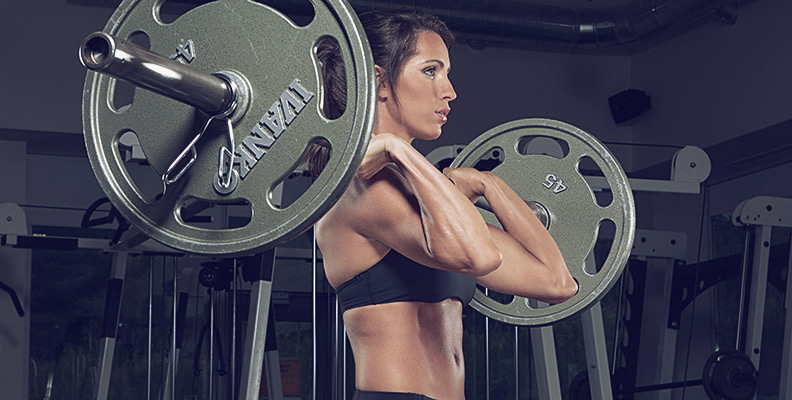When you first begin lifting weights, your focus should be on progressively overloading the muscles using the basic compound lifts. There is really no need to get all “fancy” with exercises, advanced techniques or repetition ranges. Basically, as you get stronger, just keep adding more weight to the bar.
The longer you’ve been training, however, there will come a point when just adding more weight isn’t going to cut it. You may hit a plateau and notice that the strength and muscle gains come much more slowly than they did in the beginning. This is when you know it’s time to get a little more strategic and begin incorporating the use of more advanced lifting techniques into your training to take it to the next level.
If you are looking to add some intensity to your workouts, here are five techniques to try:
Rest-pause reps
On your last working set, perform as many reps as you can just short of failure. Rest for 10 to 20 seconds, then perform as many more reps as you can get. Rest another 10 to 20 seconds, and continue doing more reps until you reach failure.
Drop sets
This is a tried-and-true method that has been used by bodybuilders for years. You simply perform a certain number of reps just short of failure, then drop the weight by 10% to 30% and continue repping out until you reach failure. This is best done on your last set or two of an exercise, for no more than one or two exercises in a single workout.
Density training
Density training is a technique used to increase the amount of work done in a certain amount of time. For example, choose two to three exercises for opposing muscle groups, using a weight that is equivalent to your 10-rep max. You will alternate exercises, performing 5 to 6 reps of each, for as many sets as you can get in a set amount of time – anywhere from 5 minutes to 20 minutes. The goal for each workout is to keep track of your total number of reps and try to improve upon that each workout.
Partial reps
On your last set or two of an exercise, after you’ve come close to failure, continue doing a few more reps in only one half of the range of motion. Partial reps are great for bodyweight exercises, such as pull-ups and push-ups, but can also be used with dumbbell and barbell exercises.
Cluster sets
Cluster training is a way to get in more reps with a heavy weight in a single set by incorporating the use of 10- to 20-second pauses. For example, for a hypertrophy focus, choose a weight that is your 8-rep max. Perform 4 reps, then rack the bar and rest for 10 to 20 seconds. Perform 4 more reps. Re-rack and rest for 10 to 20 seconds, and then perform another 4 reps. That is one set. Rest 3 to 5 minutes between sets. The best exercises to use for cluster sets are barbell movements, such as squats, overhead presses and deadlifts.
BY LINDSAY CAPPOTELLI
MUSCLETECH AMBASSADOR








